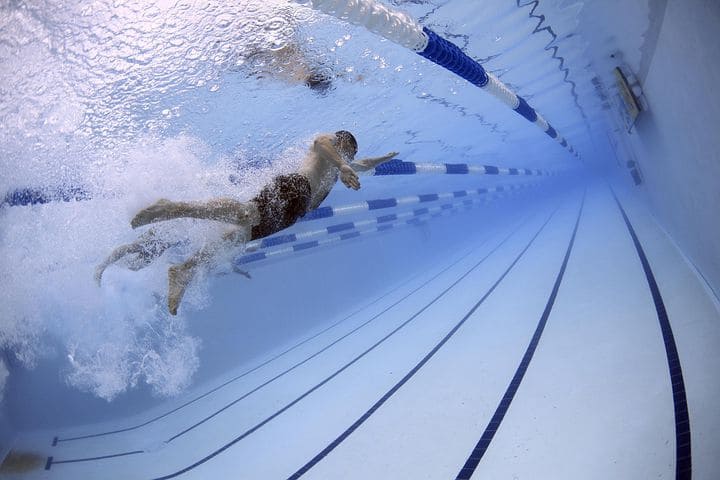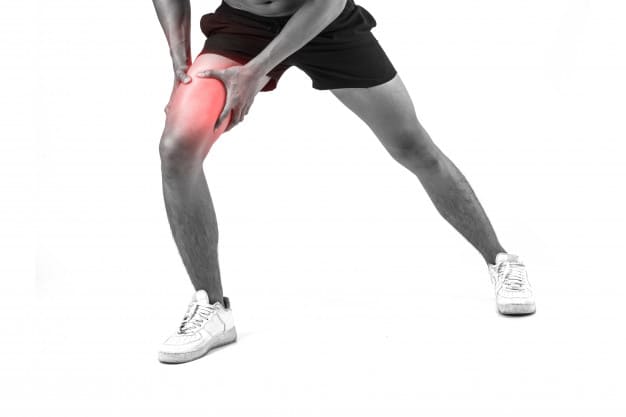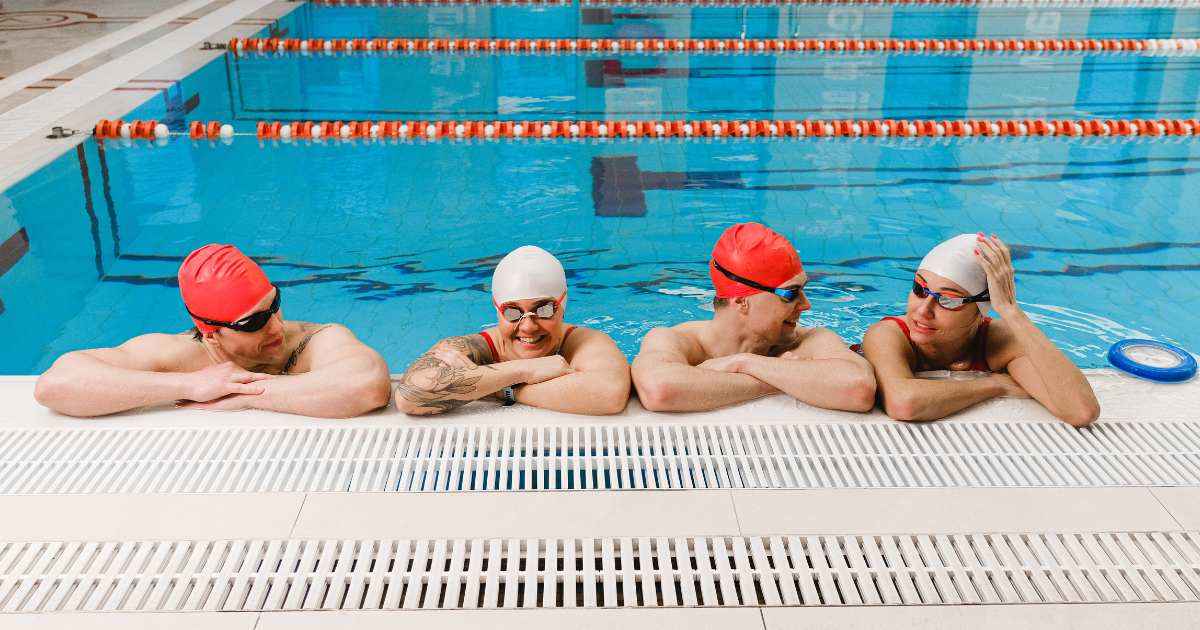Is It Advisable To Go For Swimming After Eating?
Have you ever wondered why your elders wouldn’t let you enter the pool minutes after eating as a kid?
Well, let’s look into the reasoning behind it!
The concept that you should wait for at least an hour after intake a meal before swimming is built on the objective that the blood supply from your muscles is redirected to your stomach for digestion after consuming food.
Swimming may halt that required blood flow, leading to cramps or a stitch, which could result in difficulty in swimming or even drowning. Which is why we recommend having a proper swimming plan to avoid any unwanted accidents.
Is all of this conceptual or a made-up myth?
Let’s dive a little deeper!
Medical experts have debated the food-drowning link and have cross-examined whether there was any interconnection. It is a fact that the blood from the muscles around the abdominal region has a huge role in digestion.

Whenever there is a depletion in blood flow, oxygen is reduced within easy reach to the functioning muscle and digestive organs, which can lead to cramping.
However, some specialists do not associate this phenomenon with swimming.
What Causes A Cramp Or A Stitch?
A Muscle Cramp
A muscle cramp is a sudden involuntary, spasm-like contraction of one or multiple muscles associated with exhaustion and usually occurs during or after working out.

However, apart from fatigue and exercising, a combination of factors, including water loss, electrolyte disproportioning, and neurological fatigue, lead to cramps.
Furthermore, even after a feisty meal, our bodies have much blood to keep all our body organs operating accurately, so it isn’t very certain to occur after a meal.
A Stitch
According to a scientific basis, a stitch corresponds to an exercise-related transient abdominal pain that the patient describes as a stabbing pain just below the ribs on either side of the abdomen.
They are assumed to be caused by the cramping of the diaphragm because of limited blood supply due to the increasing pressure from the abdominal area and lungs.
The Role of Our Nervous Systems
Our bodies have two operating systems: the sympathetic nervous system, known as the ”Fight and Flight’, and the parasympathetic nervous system, also known as the ”Rest and Digest’ system.
Digestion and metabolism are critical features of the parasympathetic system that also has a hand in lowering your blood pressure and heart rate.
Contrary to the parasympathetic system, the sympathetic nervous system is turned on when you swim, which causes an increase in your heart rate.
A common fact regarding these two systems of the peripheral nervous system is that as soon as you eat, the parasympathetic nervous system activates and changes the direction of the blood flow away from your arms and legs, which can cause you to drown.
Even though it isn’t recommended, most doctors don’t consider swimming after eating a dangerous activity as our bodies generate blood and oxygen for our muscles.
What Should You Do To Avoid Cramping And A Smooth Blood Flow?
It is accurate that swimming on a full stomach can be excruciating and, if done in increased amounts, can elicit nausea and vomiting caused by unanticipated gastric reflux.
Nevertheless, multiple researchers have still not been able to connect the dots between digestive distress, cold shock response, drowning, and digestion.
Eating and working out have an essential relationship: The body requires energy or fuel to function adequately, but consuming the incorrect food or eating at the wrong time can affect the body’s competency to perform at its best.
To make the most out of your workout, we recommend the following:
Do Not Eat A Meal In Excess
As a precaution, professional swimmers are vigilant enough not to eat a meal in excess. Yet, they make sure that they have consumed enough food to provide them with the energy required to execute their performance at their best.

Professional swimmers even devour food in between the race. And, if they encounter a stomach ache, it is more out of over-exertion.
Do Not Mix Alcohol With The Meal
It is also crucial to know that an individual meal on its own does not cause any problems as long as it does not go along with drinking alcohol.

Many reports have presented high-risk cases of individuals drowning because of excessive drinking. The reason is that alcohol diminishes brain function and physical capability, weakening our reflexes and the potential to react.
Drink Plenty of Water:
No exact measurements are available, but most physicians endorse drinking at least two glasses of water.
Ingest Complex Carbohydrates:
Whole grain food items such as beans and brown rice are great dietary options.
Keep Away From Fatty and Slowly Digested Foods:
Hydrogenated fats, such as those found in margarine, cheese, and proteins, including red meat, should be minimized since they have a slow digestion rate.
What Is The Recommended Meal Before Taking A Dip? Full Stomach Or Not?
Diving into the pool is not the best way to settle your stomach after a fulfilling meal. You should wait some time in the water, sit near the stairs, or take a shower to prepare your body for the sudden temperature shift.

If waiting isn’t an option, opting for meals with high carbohydrate content like fruits and dairy products is suggested. These food items are nutritious for your body and easily digested, unlike food abundant in fats and proteins.
Frequently Asked Questions
Is it okay to eat before the swim?
It is preferable to eat a minimum of an hour before swimming. During the swimming period, a person cannot get the blood flow needed for the proper functioning of their body, and thus increases the chances of indigestion, cramps, and sickness.
What happens if you exercise after eating?
During exercise, people might feel different side effects after consuming certain foods. Among these are bloating and a variety of gastrointestinal problems.
Is it okay to swim on an empty stomach?
If your weight is a lot, swimming with a full stomach is a perfect choice. Hit the pool approximately 1 hour before eating breakfast, and the body will not have an option to use the fats that have already accumulated overnight for energy.
The Final Word
Most individuals believe that going for a swim right after a meal can lead to weakness and even put swimmers at risk of drowning. However, most doctors have now concluded that there have been no documented deaths attributed to swimming after eating a meal.
Even if you experience a spasm, it is uncommon to cause a high safety issue. Research has revealed that what is troublesome is going for a swim after drinking, as this can remarkably elevate your chances of drowning.
Want to be an expert swimmer? Look no further!

